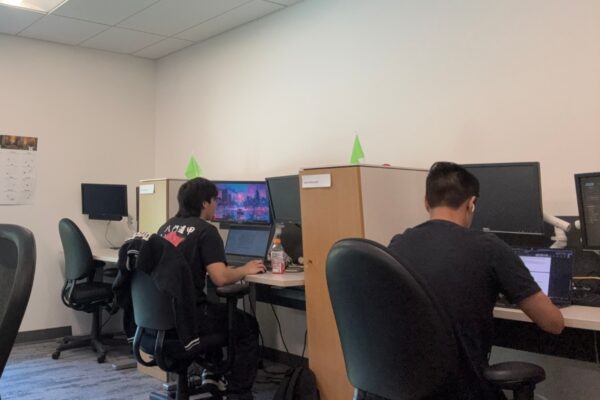Bridging Numbers and People by Jayden Guan, Digital Scholars 2025

Q&A with Jayden Guan, Digital Scholars Intern 2025.
Introduce your summer internship to readers who might not know what you did.
My summer internship was a data analytics role for the UW Bothell Advancement team, revolving around Alumni data. One of our main projects was compiling an updated list of alumni working at various target companies across three different data sources to invite them to events. Another project we worked on was finding key employment insights for UW Bothell Alumni and doing data analysis and visualization of the “I ♥ UW Bothell” fundraising event.
Aside from just projects, we also met with a variety of data experts working at UW and got to have insightful informational interviews with them. Each day of work usually consisted of reviewing data, writing Python scripts to manipulate the data, meeting with our mentors and data experts, and getting back to working on our projects.
What did you learn about how professional workplaces operate?
With the Advancement Office specifically, I was surprised by how friendly, welcoming, and relaxed everyone was. It was definitely not like the boring and quiet office environments you’d see in movies. Compared to being in a classroom, working in an office felt like there was a lot more independent responsibility to get my work done, but also gave me a lot more freedom with how I chose to solve problems. My mentors did a great job getting me used to the Advancement Office’s work culture, and I felt like I was fully adjusted after the first week and a half.
Who supported you and helped you grow in your internship?
During my internship, my mentors, the UW data experts, and my co-intern James helped me grow my professional and technical skills. My mentors gave us really interesting projects to work on to enhance my data skills, and they set up meetings to speak with UW data experts. They eased us into the informational interview process and connected us with many experts across UW. From these interviews, I learned a lot of valuable things about working in the data and tech field. This also helped develop my confidence in networking and gave me a lot of practice interviewing professionals. Lastly, working with another intern helped improve my teamwork skills, and we each played to each other’s technical skills (I would prepare data, and James would visualize it).
What was the most challenging part of your internship?
The most challenging part of my internship was that my mentors were not very technical in their knowledge of collecting and processing the data. If I ran into a technical problem and got stuck, they often couldn’t help. It was also difficult to explain my process of working with data in a non-technical way. The dynamic between us felt more like an analyst-client relationship. However, I think these challenges were great learning opportunities for the real-world workforce. I learned how to troubleshoot and solve complex technical problems on my own and got better at explaining complex topics in a non-technical way.
What was the best or most rewarding part of your internship?
One of the most rewarding parts of my internship was the connections I made. Each week, we met with two data experts at UW and got to learn from them, which boosted my confidence in networking and interviewing. Before this experience, reaching out to well-established professionals was super intimidating to me. It was also rewarding to use my data skills in a professional setting, delivering projects that actually had an impact on the UW Bothell Advancement team’s goals.
How does this internship connect to your longer-term goals?
This internship ties deeply into my long-term career goals. It allowed me to put my technical skills into practice and aided in developing my professional soft skills. I got the opportunity to meet with and learn from UW experts in the field I’m interested in. Through one of my mentors, I also got the chance to meet with a Senior Business Analyst from T-Mobile, furthering my connections beyond UW. With the things I learned and the connections I made, I hope to leverage them to pursue a career in software/data engineering through internships or other experiences.
What advice would you give to future Digital Scholars?
When going into an internship (especially a technical one), it is really important to practice your soft skills and talk to people. You’ll get to work on your technical skills through daily work, but being social and building connections is something that you have to be proactive about. Having a network makes a huge difference in your professional development and the opportunities that come your way. Another piece of advice is not to be afraid to ask questions or bring up any concerns with your project. If you’re struggling with work or you don’t feel satisfied with what you’re learning, let your mentors know.
What advice would you give to supervisors and program staff who are supporting Digital Scholars in their internships?
For supervisors and program staff, I didn’t find a lot of the workshops relevant to what I did during my internship. I think including a workshop session around a resource like LinkedIn Learning would be really helpful for us to learn more technical skills without needing to have a program manager with a technical background. I also want to see a bigger emphasis on group collaboration activities within the workshops, instead of it feeling like a lecture. For topics that I think the program should cover, interviewing for jobs/internships and resume writing would be good additions.
Learn more about the Digital Scholars program at UW Bothell.